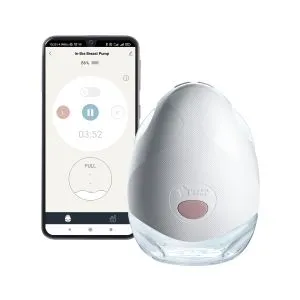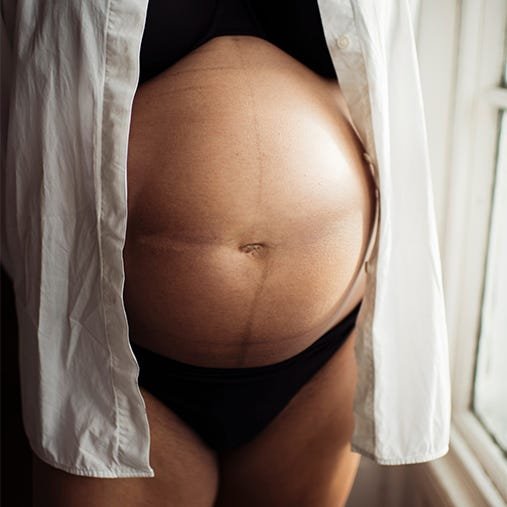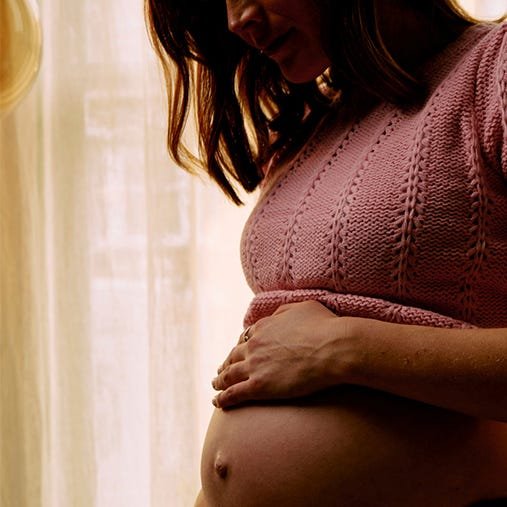If you're trying to conceive, you may be eagerly waiting for the symptoms of implantation to appear.
These can often be mistaken for the onset of a period, but they can be a sign of early pregnancy. Knowing what to look for can help you determine if you're pregnant and give you peace of mind during the waiting period.
Read on to learn about the most common symptoms of implantation and what causes them.
What does implantation mean?
Implantation is the term that's used to describe the moment when a fertilised egg attaches to the uterine lining.
It usually happens 6 to 10 days after conception and marks the first stage of pregnancy.
Once implantation occurs, a hormone called human chorionic gonadotropin or hCG is produced, and this is what pregnancy tests detect to deliver a positive result.
Common implantation signs to watch out for
Hormone changes around the time of implantation can cause a range of symptoms that you should be aware of if you're wanting to conceive, although not everyone will experience the same signs.
- Bleeding: Implantation bleeding is a fairly common symptom. It's typically characterised by a few drops of blood, but no two pregnancies are the same, so it may be slightly heavier or lighter depending on your body. If you've taken a test and know that you are pregnant, it's a good idea to check in with your healthcare provider and mention any bleeding you have so that they can rule out any causes other than implantation.
- Cramps: Implantation triggers a hormone surge that can cause cramping in the uterus. These cramps can feel similar to period pains around the abdomen, pelvis, and lower back, although they're usually lighter and don't last as long.
- Bloating: An increase in the production of progesterone around the time of implantation can impact the digestive system and cause bloating.
- Breast tenderness: Increased hormone production may cause your breasts to swell and feel tender or sore.
- Vaginal discharge: Cervical mucus production can change when implantation occurs and it's normal to have more vaginal discharge than usual during pregnancy.
- Headaches: Hormone changes triggered by implantation can cause headaches, although these should settle once your body adjusts.
- Nausea: Increased progesterone levels can cause the digestive system to slow down and may make you feel nauseous. This is known as morning sickness and usually begins around two to eight weeks after conception.
- Metallic taste: Rising oestrogen levels can cause you to develop an unusual metallic taste in your mouth.
Treating implantation symptoms
Implantation symptoms are usually temporary and will either go away on their own or can be treated with over-the-counter pain relief, although some symptoms (such as nausea) may continue into the pregnancy.
You should speak to your doctor or a pharmacist before taking any pain relief medication during pregnancy.
How long do implantation symptoms last?
Implantation symptoms usually only last a few days, and gradually lead to more obvious pregnancy symptoms.
If you find that your implantation symptoms don't improve or worsen, you should your GP for reassurance.
How to tell your period from implantation symptoms
Wondering "Am I pregnant, or do I have PMS?", well, the truth is, it can be tricky to tell whether the symptoms you're experiencing are signs of PMS or implantation, especially when it comes to bleeding. Generally, implantation bleeding is lighter and doesn't last as long as a period, but the following signs can be symptoms of both implantation and menstruation:
- Fatigue
- Bloating or stomach pain
- Breast tenderness
- Appetite changes
- Mood swings
But if you feel like you need to pee more or you've noticed that your nipples look darker, it's a good idea to take a pregnancy test to know for sure because these are symptoms that're commonly associated with early pregnancy.
Can you be pregnant without implant bleeding?
Yes, lots of people get pregnant without experiencing implantation bleeding or symptoms. Every pregnancy is different, and a lack of symptoms doesn't necessarily mean you're not pregnant.









